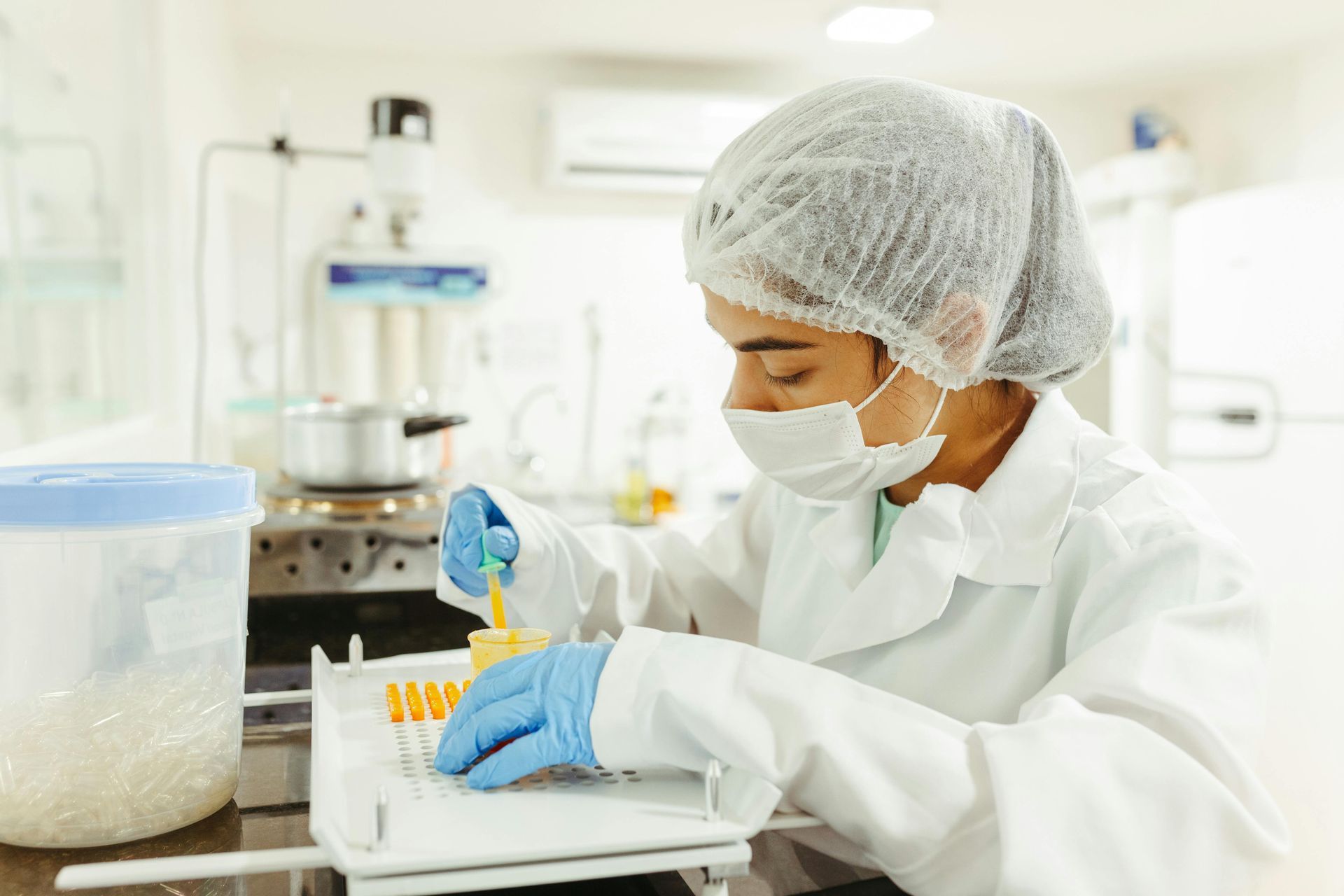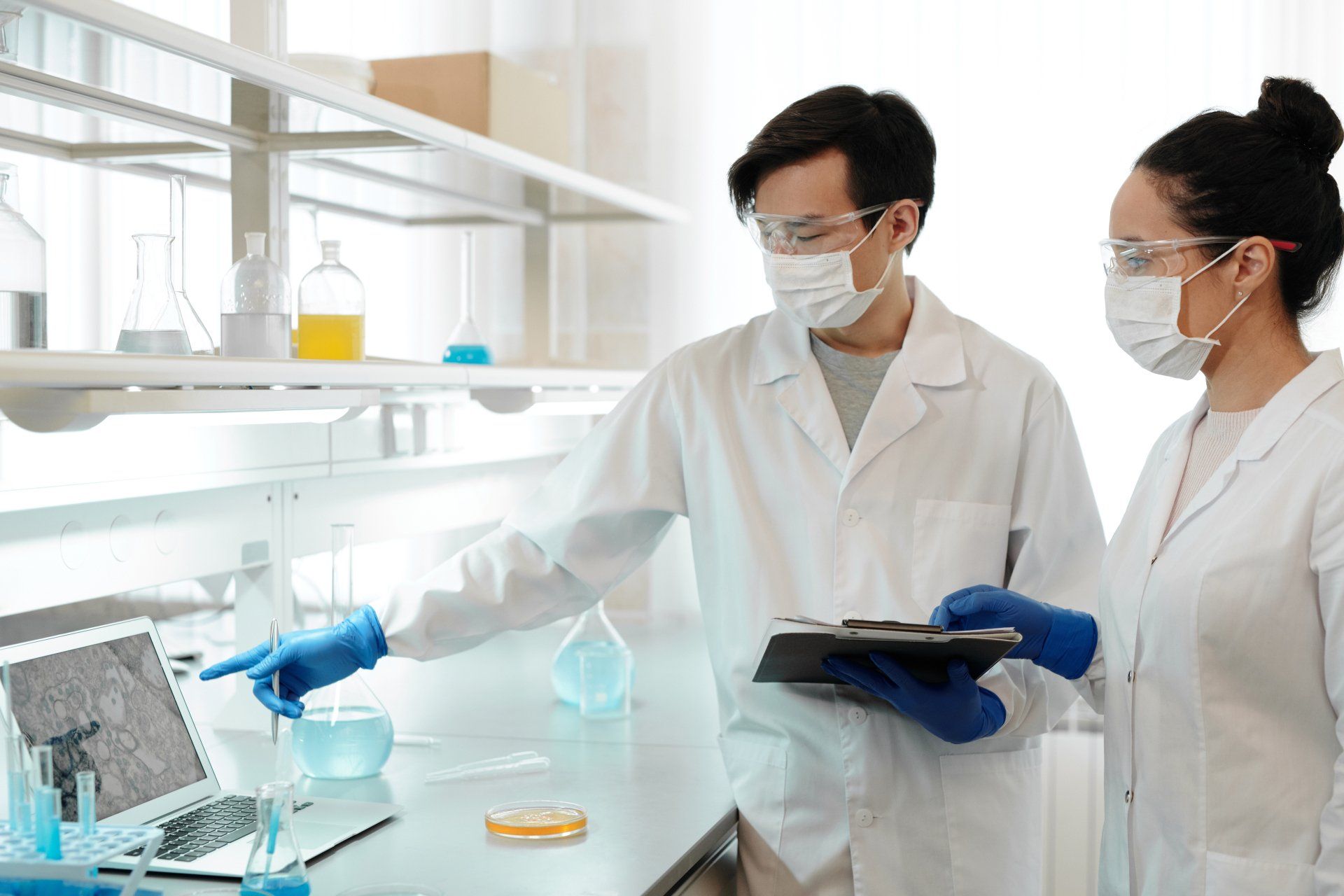Pfizer Strikes $1.95 Billion Deal With US Government to Produce Millions of COVID-19 Vaccine Doses
On July 22nd, the US Department of Health and Human Services announced an agreement with Pfizer Inc. for the mass production and nationwide delivery of 100 million COVID-19 vaccine doses. The agreement also reserved an additional 500 million doses for the US.
Pfizer and its partner, BioNTech, must still complete a phase 3 clinical trial to prove their vaccine’s efficacy. Given approval by the FDA, which would likely come in the form of an EUA, nationwide delivery is set to begin in the last quarter of 2020.
Operation Warp Speed
The deal with Pfizer is part of Operation Warp Speed (OWS), a federal effort to collect various COVID-19 vaccines. The program's goal is to have at least one safe and effective defense against the virus readily available for the American public by January of next year.
According to the WHO, 24 vaccines are currently being evaluated in clinical trials around the globe. Many countries are scrambling for a vaccine. According to Johns Hopkins, COVID-19 has infected more than 15 million people worldwide, 4 million of which are American.
Pfizer and BioNTech: Leading Vaccine Candidates
Pfizer and BioNTech received the FDA’s Fast Track designation at the beginning of July for two of their four experimental COVID-19 vaccines. The designation is meant to speed up the regulatory review process for unauthorized treatments and vaccines in the face of an unmet medical need.
The designation was granted following the release of preliminary Phase 1/2 data from studies conducted in the United States and Germany. The leading vaccine was shown to generate antibodies against SARS-CoV-2, the virus responsible for COVID-19. Some of these were neutralizing antibodies, meaning they appear to interfere with the virus’ core functions.
While the vaccine spurred immune responses, mild side effects—especially fever—were common among participants and exacerbated at higher doses. Levels of neutralizing antibodies were 1.8 to 2.8 times higher in vaccinated patients that recovered.
It should be noted that the relationship between antibody levels and immunity is still unclear. While antibodies contribute to the immune response, a vaccine that targets antibody levels only may not be enough to effectively halt the spread of COVID-19. Pfizer's phase 3 study aims to prove that vaccinated individuals are 50% less susceptible to becoming infected.
Keep Your Staff Updated
For public health organizations everywhere, now is the time to invest in life sciences training. Staying prepared means more than staying updated. What are you doing to keep your workforce COVID-ready?
Invest in new skills while refreshing those that are out of date with professional training and certification courses from the Center for Professional Innovation and Education (CfPIE). We offer a wide selection of pharmaceutical training programs and more.
Make sure your organization follows best practices, maintains compliance, and offers the skills that are necessary to tackle an unprecedented public health emergency.
Questions? Get in touch with a member of the CfPIE team today by calling 1-610-648-7550 or emailing [email protected].
Blog Categories
Stay Informed
Have Questions?
You will be able to find answers to most frequently asked questions here
Since 2001 CfPIE has
Check Out Our Life Science Training Courses.
Need help finding the right life sciences training courses? We can help you make the right choice based on your company's needs.
- AMDE, PK/TK & Drug Metabolism in Drug Discovery and Development
- Advanced Topics in Biostatistics for Non-Statisticians
- Analytical Chemistry Principles for Pharmaceutical Scientists
- Analytical Method Validation for Biologics, Biopharmaceuticals and Other Therapeutic Products
- Aseptic Processing in the Manufacture of Biotech and Pharmaceutical Products
- Auditing and Qualifying Suppliers and Vendors
- Best Practices for an Effective Cleaning Validation Program
- Biostatistics for Non-Statisticians
- CMC Regulatory Compliance Strategy for Cell & Gene Therapy Medicines
- CMC Regulatory Compliance Strategy for Recombinant Proteins, Monoclonal Antibodies, & Biosimilars
- Change Control - GMP Requirements and FDA Enforcement
- Cleanroom Fundamentals - Regulation, Science, Design, Practice, Operation & Management
- Clinical Document Management: A Trial-by-Trial Compliance Approach
- Clinical Trial Project Management, Phase 1-4 Best Practices
- Comprehensive Overview of FDA Regulatory Compliance for Drug and Biotech Products
- Computer System Validation
- CRO, CDMO and Non-Clinical Vendor Management Fundamentals
- Development and Validation of Bioanalytical Assays for Biologics: Quantification (PK) and Immunogenicity Assays
- Effective Document Management for Pharma, Biotech & Medical Device
- Effective Internal and External Quality Assurance Auditing for FDA Regulated Industries
- Ethics in Research - Values for Responsible Conduct of Research
- European Regulatory Procedures - EMA & National Requirements
- FDA Inspections - What Regulators Expect and How to Prepare
- GCP Audits - Best Practices for Ensuring Compliance & Detecting Fraud and Misconduct in Clinical Trials
- GMP Training for the QC Laboratory
- Good Clinical Practices (GCP) & Risk Based Monitoring - Understanding and Implementing Current Global Requirements
- Good Laboratory Practice (GLP) for Nonclinical Laboratory Studies
- Good Manufacturing Practices Training | GMP Course
- Human Error Prevention (HEP) - Risk Factors and Strategies
- Implementing and FDA Compliant Stability Program
- Integration of Risk Management Principles and Activities into the Pharmaceutical Quality System
- Intro to Medical Device Submission - 510(s)s, PMAs & Exemptions
- Introduction to Medical Combination Products
- Introduction to Statistical Analysis of Laboratory Data
- Introduction to Vaccines - CMC Regulatory and Quality Aspects
- Laboratory Equipment Validation and Qualification
- Lyophilization Technology - Application of Scientific Principles
- Marketing & Advertising of Pharmaceutical & Medical Devices
- Medical Device Process Validation Training for Professionals
- Medical Devices: Developing Effective Post Market Surveillance and Compliant Handling Systems
- Molecular Biology Techniques - Applications in the Biotechnology and Pharmaceutical Industries
- OTC Drug and Personal Care Product GMP & FDA Regulation
- Oncology Drug Development Course - A Comprehensive Overview
- Overview of FDA Regulatory Compliance for Medical Devices
- Overview of the New EU Medical Devices Regulations: MDR, IVDR, CE Mark and Compliance, QMS Fundamentals
- Pharmaceutical Root Cause Analysis of Failures & Deviations - Developing an Effective CAPA Strategy
- Preparation of FDA Submissions and Communicating with the FDA
- Preparing the CMC Section for NDAs/INDs/CTDs
- Process Validation for Drugs and Biologics
- QbD - Product & Process Optimization using Design of Experiments
- Quality Assurance/Quality Control for Biologics and Biopharmaceuticals
- RNA Biotechnology - An Introductory Course
- Specifications for APIs & Pharmaceutical Drug Products
- Technical Writing for Pharma, Biotech and Med Devices
- The Drug Development Process from Concept to Market
- US Medical Device & Quality Systems Regulations - Design Controls & Validation
- Writing Effective SOP and Other Process Documents
ABOUT US
The Center for Professional Innovation and Education (CfPIE) provides technical training for Pharmaceutical, Biotech, Medical Device and Skin/Cosmetics professionals. CfPIE offers more than 350 class sessions annually across 80 course titles in multiple formats, such as classroom, on-site, and certification programs.
USEFUL LINKS
STAY INFORMED
Your privacy and trust are important to us. We collect your information only for operational and advisory purposes. We do not and will not sell your private information to a 3rd party. By agreeing to this policy, you are giving us permission to contact you about our services and courses.
All Rights Reserved | CfPIE Inc. | Our courses and materials are copyrighted by CfPIE, Inc. and may not be used or reproduced without the written permission of CfPIE, Inc. management. | In partnership with CCC


